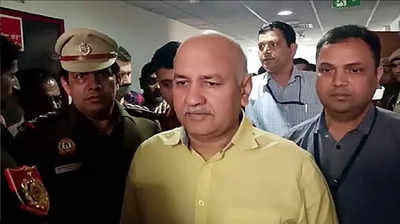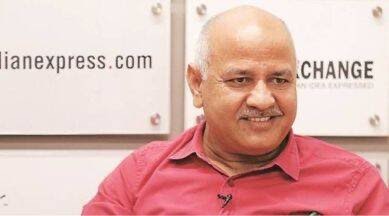In a recent development, the Delhi High Court has granted interim relief to Manish Sisodia, a prominent leader of the Aam Aadmi Party (AAP), allowing him to visit his wife who is suffering from multiple sclerosis, an autoimmune disorder. Sisodia has been in jail since February, following his alleged involvement in the Delhi liquor scam. The court has permitted him to spend a few hours with his ailing wife on Saturday, between 10 am and 5 pm. However, there are certain conditions imposed, including a ban on the use of electronic devices and no interaction with the media during the visit.

Manish Sisodia holds a significant position within the AAP and is widely regarded as the second-in-command to Arvind Kejriwal, the party’s leader. He appealed for interim bail on compassionate grounds, highlighting the critical condition of his wife’s health. Responding to his plea, the court has instructed the Enforcement Directorate, the agency responsible for investigating financial crimes, to provide its response regarding the bail application.
Simultaneously, the court has reserved its decision on Sisodia’s regular bail petition. Earlier this month, the Delhi High Court had directed the superintendent of Tihar Jail to facilitate video calls between Sisodia and his ailing wife for one hour every alternate day.
However, on Monday, the Delhi High Court rejected Sisodia’s bail plea, citing the serious nature of the allegations against him. Sisodia’s arrest by the Central Bureau of Investigation (CBI) occurred on February 26, more than six months after the registration of an FIR related to the case. Subsequently, on March 9, the Enforcement Directorate arrested him in connection with the same matter after extensive questioning at Tihar Jail.
The liquor policy, implemented by the Delhi government on November 17, 2021, faced controversy and was eventually revoked in September 2022 amid corruption allegations. Manish Sisodia is now facing charges in both the CBI and the Enforcement Directorate cases pertaining to this issue.
The decision to grant limited visitation to Sisodia arises from the humanitarian aspect of his wife’s illness, multiple sclerosis, which is an autoimmune disorder affecting the central nervous system. Multiple sclerosis can lead to various physical and cognitive impairments, necessitating specialized care and support.
The Delhi High Court’s decision to allow Sisodia to meet his wife for a few hours acknowledges the importance of maintaining familial ties and providing emotional support during challenging times. It recognizes the need for empathy in cases where personal circumstances intersect with legal proceedings.
While granting permission for the visit, the court has imposed strict conditions to ensure compliance and prevent any potential misuse of privileges. The prohibition on electronic devices serves to maintain privacy and prevent unauthorized dissemination of information. Restricting media interaction during the visit aims to prioritize the well-being of the affected individuals and prevent any unnecessary media scrutiny or intrusion.
In addition to the visitation rights, the court’s decision to reserve its order on Sisodia’s regular bail petition reflects the complexity of the case and the need for a thorough examination of the evidence and legal arguments presented by both sides. It demonstrates the court’s commitment to ensuring a fair and just process.
The cases against Manish Sisodia involve allegations made by both the CBI and the Enforcement Directorate, two significant investigative agencies in India. The CBI is responsible for probing corruption and other serious offenses, while the Enforcement Directorate focuses on financial crimes and money laundering. The charges leveled against Sisodia in relation to the Delhi liquor scam necessitate a comprehensive investigation to determine his culpability.
The decision of the Delhi High Court to reject Sisodia’s bail plea highlights the gravity of the allegations leveled against him. It reinforces the court’s stance on ensuring that individuals accused of serious offenses undergo a thorough legal process before the determination of guilt or innocence.
As the legal proceedings continue, it is essential to maintain the principles of due process and fair trial. The judiciary’s impartiality and commitment to upholding the rule of law are paramount to instilling public confidence in the justice system.
In conclusion, the Delhi High Court’s decision to grant limited access to Manish Sisodia to meet his ailing wife reflects the court’s recognition of the humanitarian aspects of the case. While in jail for his alleged involvement in the Delhi liquor scam, Sisodia has been allowed a few hours of visitation time. The court has imposed conditions to ensure compliance and maintain privacy during the visit. Meanwhile, the court’s ruling on Sisodia’s regular bail plea is still pending. The cases against him involve allegations made by both the CBI and the Enforcement Directorate in connection with the Delhi liquor policy implemented by the Delhi government. The court’s decisions demonstrate the importance of empathy, due process, and adherence to the rule of law in the Indian judicial system.
Category: Politics, National
Tags: Politics, National, Delhi












